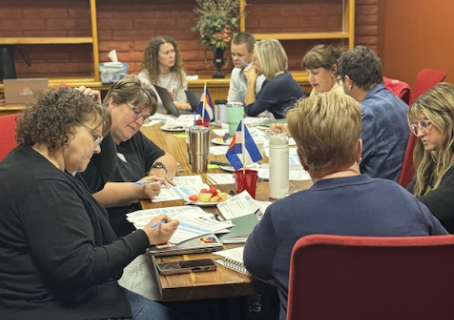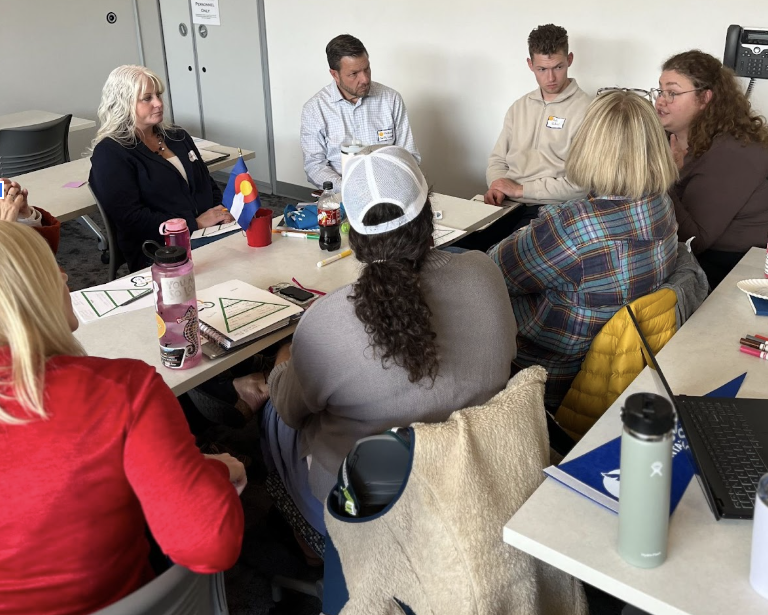
CWDC Education Consultant Sami Mooney joined the Postsecondary and Workforce Readiness (PWR) office at the Colorado Department of Education for the second and third stops in the 2024-2025 PWR regional trainings. Following the kickoff event in Durango, the training sessions continued in Colorado’s Northwestern and Southeastern regions.
Nearly 130 educators and representatives from 26 school districts participated in these sessions to discuss updates to Individual Career and Academic Plans (ICAP), collaborate on best practices, and explore ways to enhance and expand access to career-building opportunities for students living in rural communities.
The Northwestern region’s training, held in Glenwood Springs, brought together participants from one of Colorado’s least populated areas. In contrast, the Southeastern training in Lamar represented a slightly more populated region. Despite being separated by over 2,000 feet in elevation and 362 miles, both areas share a common designation as “rural” Colorado—highlighting the diversity and unique challenges of serving students across the state.
Beyond its primary purpose of training school districts, the regional trainings have another significant benefit: educating state leaders about the unique challenges these rural communities face, fostering a deeper understanding and more informed decision-making.
“We’re talking the same concepts—like work based learning, industry recognized credentials, etc.—to every stop on this tour,” says one PWR team member. “Each region needs something different to increase these activities, especially when it comes to capacity, skilled instructors, and access to industry and transportation.”
“One of the best parts of participating in a tour like this is to get to spend time in communities all around the state. We love to get to share about existing programs in the state to participate in, but we more importantly get to hear and work through barriers the field experiences.”.
Mooney covered the first stop in Durango, sharing key insights and reflections in the blog post,What’s on a Counselor’s Plate in Colorado? Insights from the southwest PWR meeting. Mooney’s perspective helped frame the importance of the regional trainings and brought statewide attention to the needs and opportunities in education.
Insights from Lamar, Southeastern Region

- Agriculture is a dominant industry, finding employers to increase exposure of non-agricultural industries can be few and far between
- Spending time with students to build resilience for leaving their community for training or work. For some students, it could be their first experience being in a larger city.
- Certifications serve as a quick way to respond to industry when there isn’t capacity to build sequenced career and technical courses. Many educators shared that they are building certifications into coursework. For example, one school shared that all 9th grades go through OSHA training to build foundational safety skills.
Insights from Glenwood Springs, Northwestern Region

- High concentration of outdoor recreation and tourism industries, like Lamar schools seek exposure to high-skill industries outside of their community
- Pressure about future generations being able to stay in their home town due to growing housing costs
- Leveraging BOCES for CTE programming, sharing resources across the region